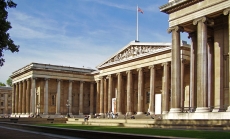The CPD Blog is intended to stimulate dialog among scholars and practitioners from around the world in the public diplomacy sphere. The opinions represented here are the authors' own and do not necessarily reflect CPD's views. For blogger guidelines, click here.
SHANGHAI --- Zhao Qizeng, China’s leading proponent of public diplomacy, wrote, “Culture is the soul and life of a nation.” That concept is the driving force behind much of China’s exercise of soft power, and other countries that deal with this superpower need to understand the value the Chinese place on their language, traditions, and other cultural elements of their national life.
BEIJING --- During the 20 years since the demise of the Soviet Union, and after a unipolar moment for the United States, China has emerged as the newest superpower. All its predecessors at this exalted level, going back even before Rome, have established their positions by amassing formidable military strength. But China is going about matters differently.
Although democracy retains its allure, the Arab uprisings that began last year were about democracy primarily as simply a means to an end.
The real goal of those who took to the streets was to grasp a better future for themselves and their families. Having a job, getting enough to eat, being assured that children could receive decent education and medical care – these constitute the substance of everyday life that so many in the Arab world had long been denied and were determined to claim.
One of the most significant factors shaping foreign visitors’ opinions is the way they are received when entering the country. For advocates of U.S. public diplomacy, this is particularly important because of the value of having outsiders come to America to gain an appreciation of the freedoms and lifestyle enjoyed here.
BRUSSELS --- Since its founding in 1949, NATO has been a bastion of hard power, first as an alliance arrayed against the Soviet Union and its Warsaw Pact allies, and more recently as a manifestation of Western muscle in conflicts such as Kosovo in 1999 and Libya in 2011. Coming off its decisive performance in helping to end the rule of Muammar Qaddafi, NATO seems to be happily basking in macho glory.

“Hajj: Journey to the Heart of Islam,” the exhibition at the British Museum that has drawn more than 80,000 visitors since it opened in late January is a remarkable achievement.
LONDON --- “Cultural diplomacy” has a nice ring to it; it brings to mind folk singing, dances around the Maypole, children’s finger-painting exhibitions, and other such feel-good exports that can make even global adversaries think kindly of each other, at least momentarily.
During the past several years, Chinese audiences have flocked to see American movies such as Kung-Fu Panda, much to the alarm of China’s political leadership, which has recently made clear that it is not inclined to surrender any terrain on the global cultural battleground.
Pages
POPULAR ARTICLES
-
June 5
-
June 18
-
June 6
-
June 5
-
June 19
-
May 15
-
June 11
-
June 5
Featured Blogger
Join the Conversation
Interested in contributing to the CPD Blog? We welcome your posts. Read our guidelines and find out how you can submit blogs and photo essays >.








